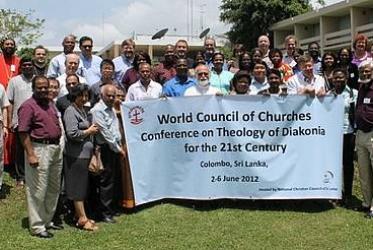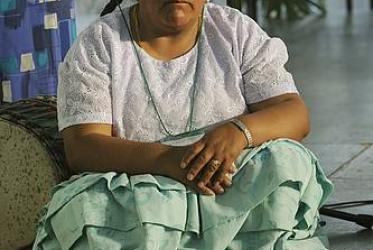Displaying 301 - 320 of 339
CWME invokes new understanding of mission and evangelism
22 March 2012
Ethics and human rights focus for Rio+20 summit
22 March 2012
Christian self-understanding in the context of indigenous religions
14 February 2012
Durban outcome is not enough, says WCC
13 December 2011
Religious voices advocate for climate justice at Durban
28 November 2011
Raising ethical dimensions in debate on climate justice
22 September 2011
WCC hails independence of South Sudan
07 July 2011
An environmental agenda for the churches
21 May 2011
Towards an eco-theology
30 March 2011
WCC Central Committee adopts statements on public issues
21 February 2011
Church representatives in Cancun to call for moral decisions
24 November 2010














